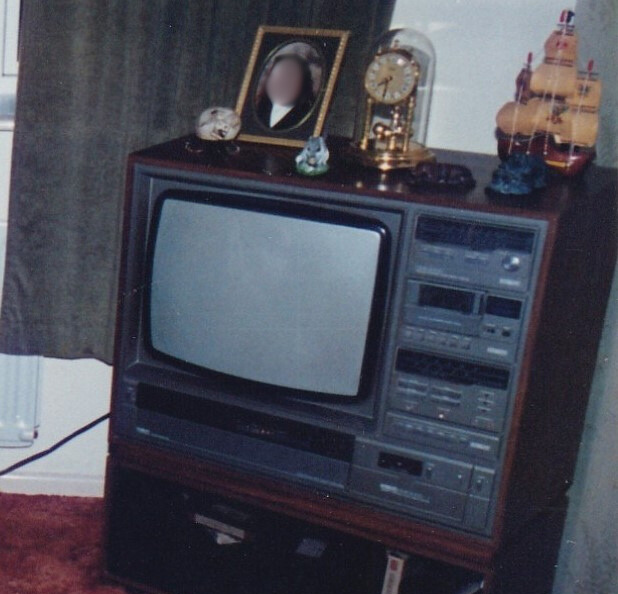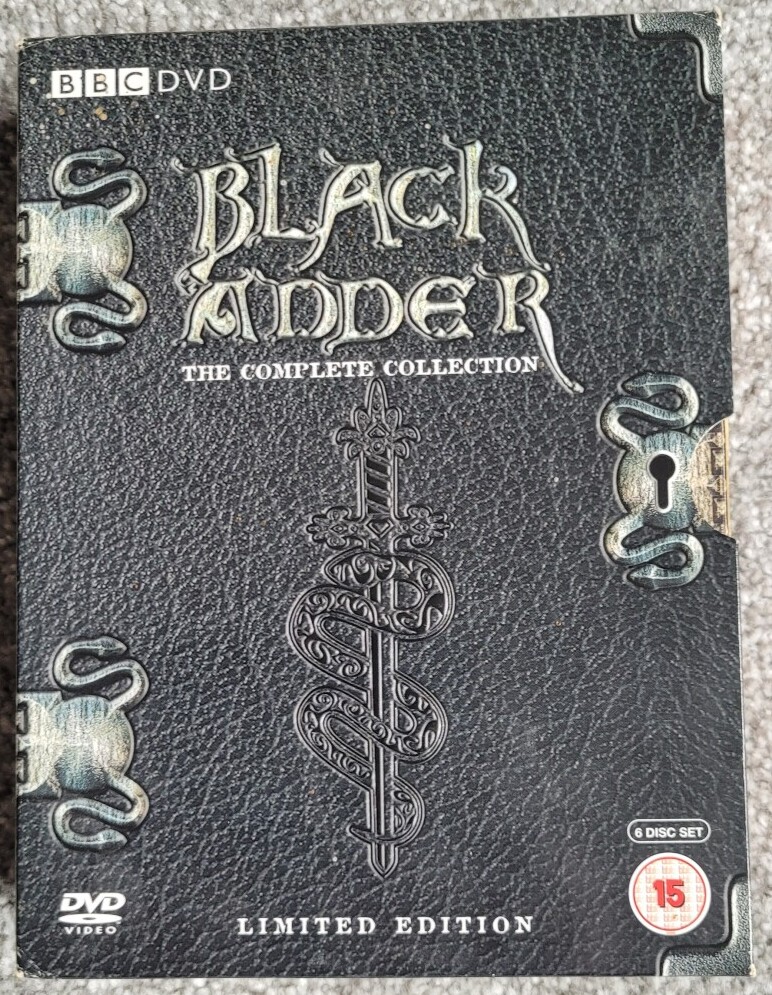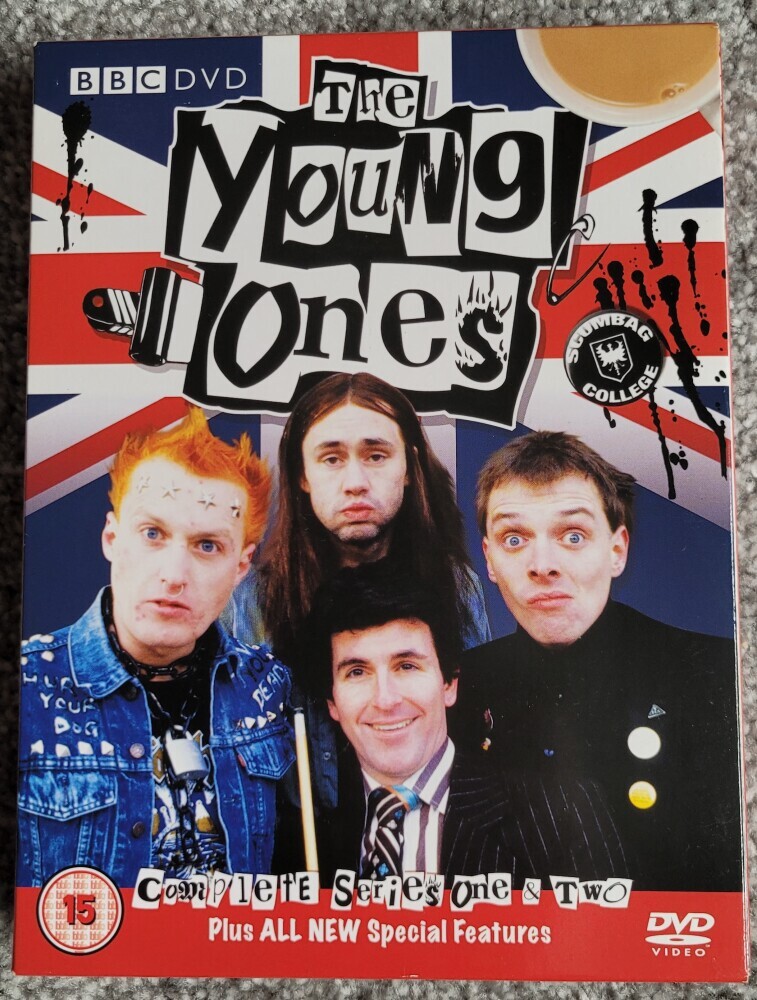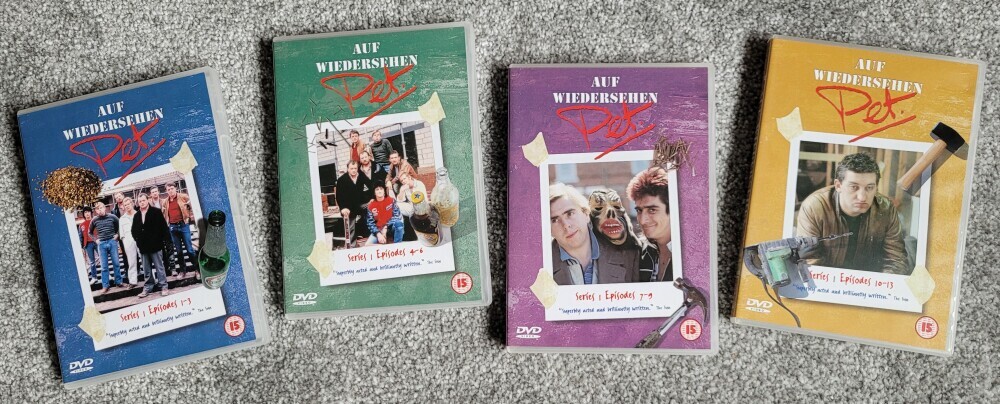
We already know that 1980s Britain was a vibrant place culturally. There were countless cultural shifts, innovations, and contrasts. I’m talking about fashion, music, and, of course, the telly – the beloved household staple.
This was a time when the living room TV set transcended its role from an entertainment box to a social gathering centrepiece. It brought families together, creating shared experiences that were talked about at school, work, or over a pint at the local.
Looking back, the TV shows from the 1980s weren’t just fabulous entertainment; they now serve as time capsules. They have much in common with artwork or literature from hundreds of years ago.
They shine a light on societal norms of the time and show how attitudes and standards have shifted. British TV captured it all, from sitcoms’ cheeky charm to dramas’ gritty realism.
They served as a mirror, reflecting the triumphs and the challenges of the times. Long before binge-watching was a thing, these shows had folks eagerly waiting a whole week just for the next episode. They were a unifying force, sparking conversations about everything from politics to daily life.
Globally, British television from this era left an indelible mark. Known for its wit and intellectual depth, the programming landed with audiences far beyond British shores. Shows from the 1980s were certainly entertaining. Not only that, they introduced international audiences to distinctive British humour, style, and storytelling. They paved the way for future UK-produced TV to gain a loyal global fanbase.
In today’s world of streaming and instant access, it’s easy to forget the communal aspect of TV viewing in the eighties. We would all gather around the TV to watch these programmes… mostly. We enjoyed (endured?) the anticipation of a broadcast schedule.
Each programme had the capacity to take us on an emotional rollercoaster. We joined in with endless debates over which TV show reigns supreme. It’s this era’s unique charm that makes reminiscing about its shows such a delight.
Trends and Innovations in 1980s British TV
The Eighties was a golden era for British TV, not just for its memorable shows but for the seismic shifts in how TV was made and consumed. This era saw the rise of cult classics that left a lasting impact on pop culture.
For sure, iconic shows like The Young Ones and Blackadder entertained us. But they also pushed boundaries and redefined what comedy could be, whilst staying true to the concept of the sitcom. These shows embraced absurdity, satire, and sometimes even a touch of anarchy, leaving an indelible mark on the genre.
Back then, advances in technology started changing the game. With colour TV becoming the norm, production quality soared. New possibilities opened for creative storytelling. Writers and directors played around with narrative styles and special effects. TV was a springboard for ambitious projects.
The 1970s was perhaps the golden decade for British-produced sci-fi. In the eighties, Doctor Who‘s time travel shenanigans and imaginative worlds continued to attract viewers. Its wobbly sets notwithstanding. That said, the Doctor was put out to pasture after its twenty-sixth series which ended on 6 December 1989. It didn’t return to screens until 2005.
British drama also stood out. Series like Brideshead Revisited and The Jewel in the Crown epitomised high-quality storytelling. These two ITV dramas looked beyond British life; they explored intricate themes of class, empire, and identity. The depth and realism they brought to the table set a benchmark for storytelling standards. At a time when discussions about identity and belonging were gaining momentum, these shows resonated deeply.
More closely related to life back home we had the gritty drama about life on the dole in 1980s Liverpool, The Boys From The Blackstuff. Writer Alan Bleasdale showed us the devastating impact of unemployment on a group of Liverpudlian men during the early 80s’ economic downturn. It highlighted themes of despair, resilience, and social injustice.
On a similar theme, but told in a more light-hearted manner was Auf Wiedersehen, Pet. This was a take on Geordie and Bristolian bricklayers. Others featured too. There was a Liverpudlian plasterer, a Wulfrunian electrician and a Cockney chippie. They were hurting no less than the boys from the black stuff, but Clement and La Frenais were comedy writers rather than playwrights.
Both injected that signature British humour into storylines. They all influenced international audiences and, it must be said, future comedies. Their appeal lay in their mix of sharp wit, relatable characters, and everyday scenarios, all wrapped in a British accent. Humour has always been used to entertain but also to explore and sometimes poke fun at the quirks of British society.
The innovations of the 1980s laid a foundation for the future of television. Creative risks taken during this time cultivated a vibrant TV landscape. Experimental storytelling was key to the success these shows enjoyed. TV may have been changing, but pushing boundaries and engaging viewers would never go out of style.
The Top Ten* Iconic British TV Shows of the 1980s
Digging into the eighties British TV schedules will reveal some hidden and some more obvious treasures. Gems that as well as being of their time, have also stood the test of time.
So, what makes a show iconic? It’s a blend of memorable characters, gripping narratives, cultural impact, and a touch of that British flair. But let’s not keep the suspense. Here’s a guide to a handful of must-watch TV shows from the 1980s.
Only Fools And Horses
Written by John Sullivan, Only Fools was a BBC sitcom that perfectly encapsulated the British working-class spirit. With David Jason’s Del Boy and Nicholas Lyndhurst as Rodney, the show served up laughs and lessons in equal measure. It contained catchphrases and more as it painted a picture of hope and hustle.
It had a darker cousin on ITV/C4. Prospects was the tale of Pincey and Billy, written by Alan Janes. Struggling on the dole but suffused with a little of Del Boy and Rodney’s faith and ingenuity, the pair traversed London’s Isle of Dogs seeking their fortune and a way out of their allotted life stations.
Blackadder
Blackadder was written by Rowan Atkinson and Richar Curtis, then later by Curtis with Ben Elton. Running to four series, it was a historical sitcom featuring Rowan Atkinson at his comedic best.

The show spanned the ages. First, we had the aftermath of a fictionalised Battle of Bosworth. Then we were taken to the court of Queen Elizabeth I Middle Ages. Next up, it was the time of George, the Prince Regent. Finally, the ensemble found itself in the trenches of World War I. All episodes are rich with biting satire and unforgettable wit.
It’s a masterclass, blending history with comedy and comedy with pathos. Twenty-four episodes plus a Dickens spoof of a Christmas special.
Doctor Who
For fans of the supernatural, Doctor Who was an exhilarating journey across time and space. As a way of maintaining longevity, the Doctor would regenerate. This allowed the introduction of new actors into the lead role.
In the 1980s, we had Tom Baker, Peter Davidson, Colin Baker (no relation) and Sylvester McCoy play the Doctor. All offered their own take on the role, and what was served up was an intriguing blend of sci-fi and drama. With its supposedly permanent end in 1989, this era helped cement the show’s status as a cultural phenomenon.
Doctor Who wasn’t the sci-fi game in town. Written by Doctor Who writer Terry Nation, Blake’s 7 offered a dystopian narrative that was unique for its time. The storytelling was bold, following rebels standing up against a tyrannical Federation. The gritty realism and suspenseful plots kept viewers on the edge of their seats.
The Young Ones
Although most definitely a sitcom, The Young Ones broke norms with its chaotic and anarchic spin on university life. This sitcom was slapstick and then some. Written by than man Ben Elton, with Rik Mayall and Lise Mayer, it was a raw, energetic portrayal of youthful rebellion in Thatcher’s Britain.

This was our go-to topic for discussion on Wednesday mornings as we sat in the art studio near the beginning of our second year at secondary school. On the preceding Tuesday nights, we would all make sure we were glued to the TV watching the show. We wouldn’t want to be embarrassed by not knowing what had happened.
Spitting Image
Sunday nights’ final concession to leisure was Fluck and Law’s Spitting Image. Shown on ITV at ten o’clock, this was satire with latex puppetry. 1984’s debut 12-show series was almost its last as the number of viewers plummeted from the first show’s 7.9 million. Its future looking bleak, Doug Naylor and Rob Grant, later of Red Dwarf fame, were brought in as head writers.
As they say, the rest is history. The character voices came from the great and good of British alternative comedy. Spitting Image took aim at politics and pop culture. It was as much a social commentary as entertainment. It had no qualms about being irreverent, which is precisely why it struck a chord.
Spitting Image won a total of ten BAFTA Awards.
Brideshead Revisited
ITV’s adaptation of Evelyn Waugh’s novel painted a poignant picture of love, loss, and nobility. It ran over 11 episodes between 12 October and 22 December. The show’s stars were Jeremy Irons as Charles Ryder and Anthony Andrews as Sebastian Flyte. Both Sir John Gielgud and Laurence Olivier provided cameo performances.
The script utilised much of Waugh’s originally published dialogue. The show’s nuanced characters and lavish production values set it apart from typical dramas.
The series won several BAFTAs in 1982. Notably, it won the Award for Best Drama Series or Serial and Anthony Andrews won the Best Actor category.
The Jewel In The Crown
Adapted from Paul Scott’s Raj Quartet novels, The Jewel In The Crown was a sumptuous adaption by Granada for the ITV network. Set over 14 episodes, it depicts the unravelling of the British Raj in India both during and after World War II.
The Jewel In The Crown shows the tension faced by Art Malik’s character Hari Kumar. We see him attempting to navigate the complexities of his identity. He is at the same time, both British and Indian. Facing racial prejudice and struggles with his Indianness, he can fit into neither identity. This is set against the background of political turmoil in colonial India.
Yes, Minister and Yes, Prime Minister
Written by Antony Jay and Jonathan Lynn, no list would be complete without Yes, Minister and its continuation Yes, Prime Minister. Starring Paul Eddington as Sir Jim Hacker, the initial series saw Hacker’s party elected to government. Whereupon Hacker became Minister for Administrative Affairs.
It was a political satire that peeled back the curtain on British government workings. The main thrust of each episode was the interplay between Minister Hacker and the department’s Permanent Secretary, Sir Humphrey Appleby played by Nigel Hawthorne. Their sharp, witty exchanges usually ended with Sir Humphrey having persuaded Hacker that his position – the status quo – would be maintained.
Yes, Minister won the BAFTA for Best Comedy Series on four occasions. Nigel Hawthorne won the BAFTA for Best Light Entertainment Performance four times.
Edge Of Darkness
This was written by Troy Kennedy Martin, who also wrote the original screen play for The Italian Job, and jointly created Z-Cars. Edge of Darkness starred Bob Peck and Joanne Walley.
It’s another standout, blending crime, thriller, and environmental issues into a gripping storyline. With its cutting-edge narrative techniques, it was ahead of its time in tackling contemporary themes.
Shown in November and December 1985, Edge Of Darkness won the 1986 BAFTA for Best Drama Series or Serial. Bob Peck also won the Best Actor Award.
Auf Wiedersehen, Pet
Auf Wiedersehen, Pet walked the line between comedy and drama. It explored the lives of British builders working overseas. Seeking employment abroad, Geordie bricklayers Dennis (Tim Healy), Neville (Kevin Whately) and Oz (Jimmy Nail) ended up in Düsseldorf, West Germany.

Right from the start, things go wrong – they are forced to live in porta cabins on-site rather than in off-site accommodation. Neville is forced to pretend to be a carpenter as they already have enough bricklayers. The ensemble was completed by Barry (Timothy Spall), Bomber (Pat Roach), Wayne (Gary Holton) and Moxey (Christopher Fairbank).
It resonated with audiences, portraying the camaraderie and tensions of expatriate life. A later 1980s series was made relocating the action to the Midlands and then on to Spain. However, the tight confines of the builders’ hut of the first series gave it an edge that was lacking in the second and subsequent series (2002, 2004).
Boys From The Blackstuff
This was originally a one-off Play For Today, shown on 2 January 1980. It was extended to a six-part series with the addition of 5 more episodes. These were shown between 10 October and 7 November 1982.
Its most discussed episode was Yosser’s Story, which focuses on Yosser Hughes. Yosser was memorably portrayed by Bernard Hill. The episode documents the deterioration of a man’s mental health as, after losing his wife, he fights to avoid losing his children to the local authority.
The reach of these shows extended from the time spent watching them to shaping opinions. Even more so, they often provided commentary on the society of the day. Each one offered a unique experience. British creativity was in full swing during the 1980s, leaving a legacy for future generations.
Legacy and Influence of 1980s British TV Shows
When the golden age of television is talked about, the 1980s British TV scene gets a special mention. The shows from this era carved out a legacy that has influence on today’s TV programming.
1980s TV had a creative freedom. It also promulgated audacious, and sometimes surreal, themes. These paved the way for modern television’s robustness. Following in the footsteps of Fawlty Towers especially, Blackadder and The Young Ones weren’t just funny in their time. They redefined comedic storytelling, inspiring numerous writers and actors to push the envelope further. Today’s sitcoms owe a nod to the sharp wit and risk-taking of these pioneering shows.
With drama, series like The Boys From The Blackstuff, Brideshead Revisited and Edge of Darkness showcased how well-told stories could captivate across generations. These productions taught creators the art of layering narratives with depth, a formula still sought after by writers aiming for that Bafta TV Award-winning moment. They’re a reminder that a blend of strong characters and compelling plots is timeless.
These 1980s classics are still hitting the screens, whether through reruns or digital streaming, inviting new viewers to discover their charm. Certain eighties shows have been resurrected. Shows like Spitting Image and, especially, Doctor Who, stand as a testament to their enduring appeal. There’s something special about how these stories continue to engage fresh eyes, proving their evergreen relatability.
And then there are the fans, the avid followers who still adore these classics. No to mention the creators and actors whose careers were launched by these iconic programs. Personal accounts reveal that as well as being entertainment, these shows were formative. They shaped perspectives and careers. From fan conventions to documentaries, the love for 1980s British TV is alive and kicking, constantly rekindling the nostalgia and underlining its undying relevance.
*I was aiming for ten. I may have got carried away…
